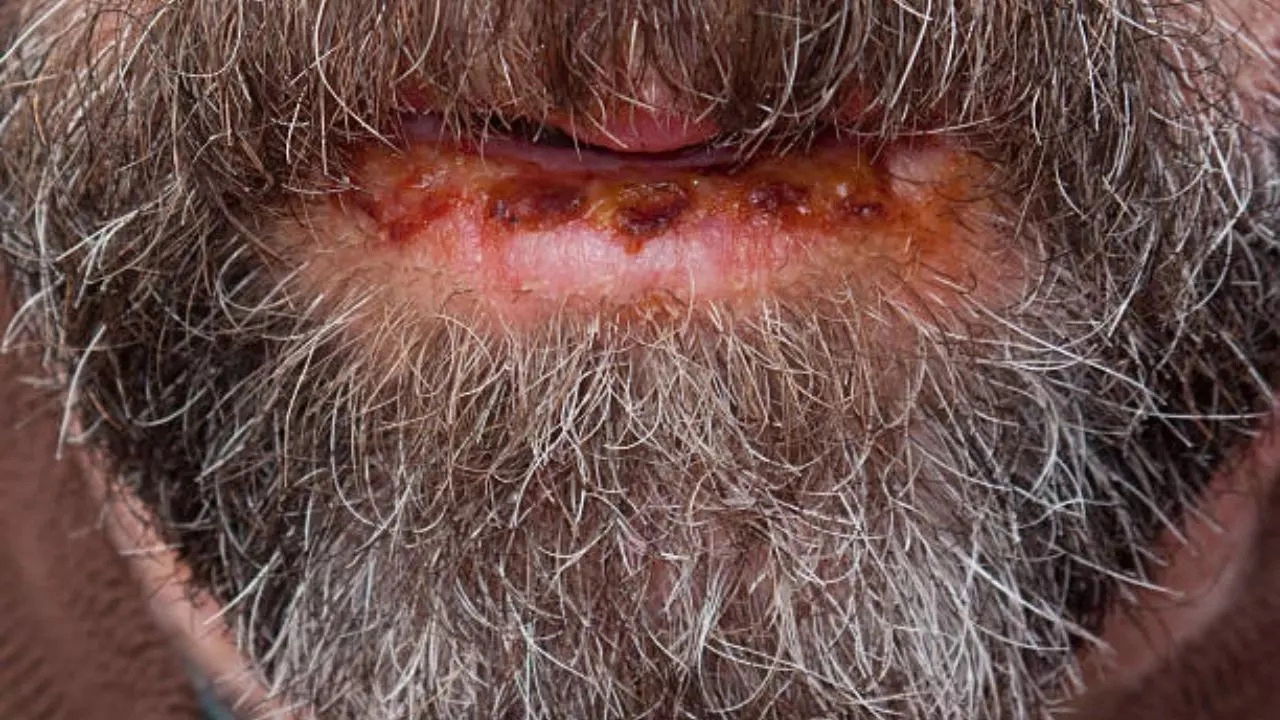Ashima Sharda Mahindra • 19 Aug 2024
What Is Lip Cancer And How Long Does It Take To Spread?

While in some people, oral cancer spreads rapidly, others see it moving at a slow or moderate pace
Lip cancer is a type of oral cancer that begins in the cells of your lips. It develops in the squamous cells or flat cells that line certain oral and facial structures and that is why experts say it is diagnosed in the early stages. While it is highly treatable as lip cancer gets diagnosed early, it accounts for approximately 0.6 per cent of all cancers in the United States. According to experts, approximately 40,000 cases are diagnosed across the world every year.
What does lip cancer look like?
Doctors say lip cancer mostly resembles mouth sores that do not heal properly. Light-skinned people have reddish sores and those with darker skin look dark brown or grey in colour. According to experts, lip cancer lesions can look a lot like cold sores when they first appear in the affected area. While sores heal eventually, lip cancer does not go away, and the infection lingers for a long time.
How quickly does lip cancer spread?
According to experts, the progression of lip cancer varies from one person to another. While in some people, this cancer spreads rapidly, others see it moving at a slow or moderate pace.
Studies say the progress of lip cancer also depends on the location of the tumour, and the stage at which it is when you begin treatment. According to Healthline, a 2017 study said it took a median of 10-12 months for lip cancer, even after treating the primary tumour, to spread either locally, regionally, or to distant structures. Some metastases developed in only three months.
Where does lip cancer metastasize?
Doctors say if left untreated, lip cancer spreads to various other parts of your body, which include:
- Lymph nodes
- Jawbone
- Other tissues within the mouth
- Lungs and other parts of the body
Signs and symptoms of lip cancer
A few signs and symptoms of lip cancer include:
- A persistent sore or small ulcer on the lip that does not heal
- A thick lump on your lip
- White or red patches on the lip
- Extreme pain, inflammation, and other sensations in the lip
- Bleeding from the lip
- Changes in lip colour and texture
- Difficulty in swallowing and moving your jaw
- Swollen lymph nodes in your neck
What causes lip cancer?
According to experts, there are many factors that drastically increase your risk of developing the condition, a few of which include:
- Use of tobacco – including smoking cigarettes, cigars, pipes, or bidis
- Heavy use of alcohol
- Excessive sun exposure
- Having fair skin
- Being over the age of 40 years
- Having human papillomavirus or HPV
- Having a weak immune system
Get Latest News Live on Times Now along with Breaking News and Top Headlines from Health and around the world.